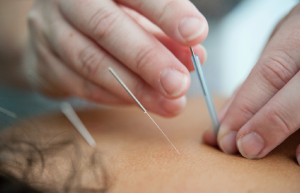Fertility Acupuncture: Can it Work and What Does the Research Say?
Acupuncture has been a part of ancient Chinese medicine for centuries and, in more recent years, found a place in more cultures. In the last few decades, acupuncture is being used alongside fertility treatments to boost the chance of pregnancy. But what does the research say, and how can acupuncture improve fertility? Read on.
In the United States, about one in five heterosexual women aged 15 to 49 are unable to get pregnant after a year of trying. Also, in this group, roughly one in four women have difficulty getting pregnant or carrying to term. In addition, about 10% of all males in the US attempting to conceive also suffer from infertility.
Conception is complicated and dependent on a lot of pieces falling into the right place like:
-
Healthy sperm and healthy eggs
-
Unblocked fallopian tubes
-
Good embryo quality
-
The embryo’s ability to become implanted
-
The sperm’s ability to fertilize
What’s more is that for a pregnancy to come to term, you need a healthy embryo and female environment for development. So, there’s a lot that needs to happen. Infertility is defined as being unable to get pregnant after a year of trying.
What is Fertility Acupuncture?
Acupuncture involves inserting small, thin needles into various parts of the body to improve blood flow to that specific area. The theory behind acupuncture fertility is that it could help boost fertility in three ways:
-
Encourage the release of chemicals in the brain that affect hormones and reproduction
-
Stimulate blood flow to the uterus
-
Boost chemicals that lower stress hormone levels
Infertility and Acupuncture: What Does the Research Say?
So far, research into acupuncture shows that it’s safe and can help with some parts of medicine, like pain management and lowering stress levels.
Some evidence shows that acupuncture can create great results as a treatment for infertility in both men and women. In a case of a young couple, a 28-year-old man and woman were unable to conceive for one year. After three months of acupuncture, the man’s sperm quality improved, and the woman’s ovarian cysts cleared up. The couple succeeded in getting pregnant.
One study found that women who received acupuncture with IVF had 66% more successful fertilizations. Another study on men found that they had an improvement in sperm counts and motility after receiving acupuncture.
It’s difficult to give an exact reason why acupuncture could work. Right now, the verdict is still out on the precise way acupuncture increases fertility. While research in the area continues, more data will come to light that shows exactly how needles could help.
But that doesn’t mean you should write off acupuncture altogether. It’s not uncommon for fertility doctors to recommend acupuncture for relaxation. Anyone going through IVF knows how stressful the whole process can be. Helping to lower anxiety and stress levels may be beneficial.
What are the Benefits of Acupuncture?
Results from several studies suggest that acupuncture may help to ease different types of pain like:
-
Neck pain
-
Low-back pain
-
Knee pain
It may also help to lower the number of tension headaches and prevent migraines. Research also suggests that factors like expectation and belief could also play a role in the beneficial effects of acupuncture on pain.
Several lifestyle factors can affect fertility in both men and women, such as nutrition, weight, exercise, alcohol and tobacco use, and environmental exposure. Following a varied diet, maintaining a healthy weight, and avoiding smoking can help to promote fertility.
Acupuncture is all about creating a harmonious environment and balance in the body to help achieve successful fertilization. Research shows that it may help to increase the effectiveness of IVF and may even benefit as a stand-alone fertility treatment.
Join Our Community
Archives
- January 2023
- December 2022
- September 2022
- August 2022
- June 2022
- May 2022
- April 2022
- March 2022
- February 2022
- January 2022
- December 2021
- November 2021
- October 2021
- September 2021
- August 2021
- July 2021
- June 2021
- May 2021
- March 2021
- September 2020
- August 2020
- July 2020
- June 2020
- May 2020
- April 2020
- March 2020
- February 2020
Subscribe

Sign up to receive FREE toolkit
From Dr. Hyman, #1 NY Times & Amazon Author
We never spam or sell your e-mail





Follow Our Every Move